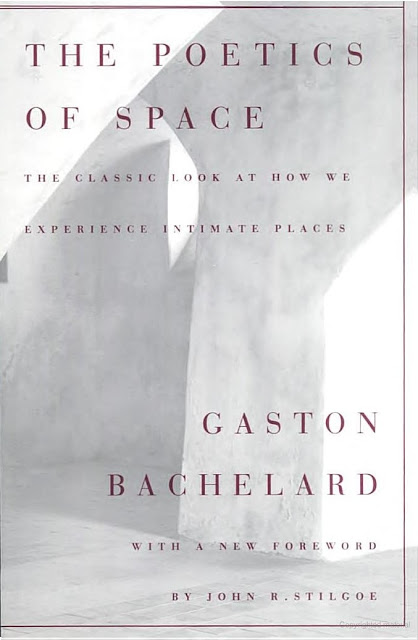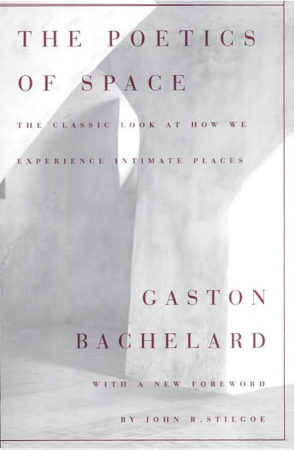The Poetics of Space

Gaston Bachelard (1958)
Recommended by Trish Halligan
This book is difficult to categorise but this is where, to me, the joy of it dwells. In describing the domestic spaces that both give us shelter and provide an untrammelled place in which to think and feel, Bachelard explores poetry, philosophy, observation and memory (sometimes simultaneously). He offers reflections on drawers, chests, nests, wardrobes and corners; there is also a seemingly contradictory but completely revelatory chapter on what Bachelard terms ‘intimate immensity’.
I especially love this latter chapter and the one on corners. Somehow I never realised that I most comfortably read, think and work in the shelter of a corner, either a naturally occurring one or one I have managed to construct. Bachelard removes entirely the negative connotation of being “cornered” and in these chapters beautifully aligns the absence of claustrophobic thinking with its opposite of being present in vast exterior spaces: on the sea or in forests. It summons to my mind Woolf’s recognition of the need for the ‘queer amalgamation of dream and reality, the perpetual marriage of granite and rainbow’.
‘Housed everywhere but nowhere shut in’, writes Bachelard, ‘is the motto of the dreamer of dwellings… A daydream of elsewhere should be left open therefore, at all times’. This also puts one in mind of anchoresses or of William Cowper in his beloved alcove at Olney. In both cases their bodies are sheltered by a small space and their external vision is only fixed on one point, yet this provides their internal vision with endless space to explore.
